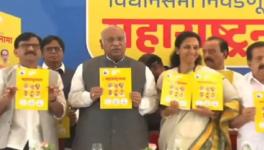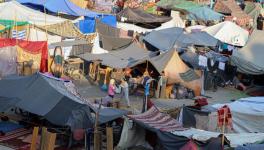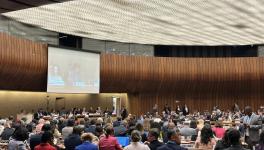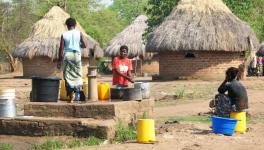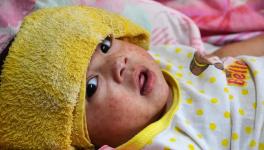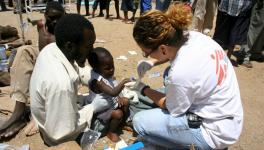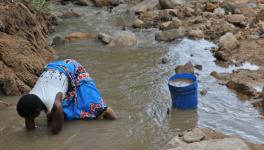World Health Day 2023: Continuing The Struggle For Health
Action in front of the European Commission, April 7,2023 (Photo: Viva Salud)
The celebration of the 75th World Health Day this April 7, amidst the WHO’s call for “health equity in face of unprecedented threats”, is yet another reminder of how we find ourselves in a bleaker world than we hoped when the World Health Organization was first formed.
As poverty rates grow, global health inequities and inequalities between countries have been exacerbated in the context of the COVID-19 pandemic. The failure to learn from the pandemic, or to respond to the climate crisis, doesn’t seem to fuel a sense of urgency among the international community, especially countries in the Global North. Sexual health and reproductive rights continue to be stripped away. International institutions continue to impose restrictive economic and social policies, even as countries in the Global South face a high debt burden, which has disastrous impacts on their health systems. The Universal Health Coverage (UHC) paradigm, despite all its shortcomings, is still the word of the day—even as it brings more commercialization of health, market-led digital transformation, and financialization.
But there is a flip side to this picture. The recent victories of progressive and pro-people governments in Latin America bring optimism. The new administrations in Colombia, Chile, Honduras, and Brazil provide us concrete opportunities to turn the tide towards policies that bring health and wellbeing to all. What brought about these changes in Latin America are the same forces that keep us—the people, communities and movements—fighting for changes every day. Underlying forces like relationships, emotional connections, and the sharing of values and feelings, are a key driver of our struggle for a healthier world.
Social and political determinants of health are still key
Since its inception, the People’s Health Movement (PHM) has raised the issue of how most factors determining poor health lie outside the health sector entirely. The social determinants of health are as important as a strong health system. Both health systems and the social determinants of health are products of social relations. Both are fields of conflict. The struggle for health and social justice are not separate.
Along with other progressive groups, PHM has worked to continue to keep the call for a New International Economic Order (NIEO) alive, and has kept it as an important element of its analysis of health inequities. Most importantly, PHM has continued to initiate and support the health and well-being struggles and action by people, communities and people’s movements.
Read more: Health activism is now more important than ever
This year, the WHO is celebrating its 75th anniversary, remembering the years spent improving public health all around the globe. The WHO rightfully celebrates important successes, but it should also seize the opportunity to reflect on its own status. This anniversary should be taken as a reminder of how the autonomy of the WHO has decreased over the years due to influences of various stakeholder institutions.
Transnational corporations, financial institutions, and other actors have undermined the authority of the WHO and its members to shape policies which benefit people, not corporations or philanthro-capitalist institutions. As the WHO members negotiate the Pandemic Treaty, amendments to International Health Regulations, and prepare a new report on social determinants of health inequity, they should look back at the agency’s original mandate to build inclusive and equity driven health systems. The WHO is not the only United Nations agency set to conduct key discussions on health this year: a UN High-Level Meeting on UHC is in the making, providing countries another chance to break from the current system and steer back towards Comprehensive Primary Health Care (PHC).
A special issue of the People’s Health Dispatch for World Health Day has been coordinated by the PHM Health Systems Thematic Group. The organization has been taking up issues and strategies such as building the capacity of young activists to work towards equitable health systems and comprehensive PHC, monitoring and critiquing global health policies, and bringing local health systems narratives and scenarios together. Through a series of articles and video testimonies, the activists analyze the current state of health systems in the Global South and provide a glimpse into health struggles to come.
Deepika Joshi and Leonardo Mattos are health activists and researchers working with the People’s Health Movement Global.
People’s Health Dispatch is a fortnightly bulletin published by the People’s Health Movement and Peoples Dispatch. For more articles and to subscribe to People’s Health Dispatch, click here.
Get the latest reports & analysis with people's perspective on Protests, movements & deep analytical videos, discussions of the current affairs in your Telegram app. Subscribe to NewsClick's Telegram channel & get Real-Time updates on stories, as they get published on our website.











